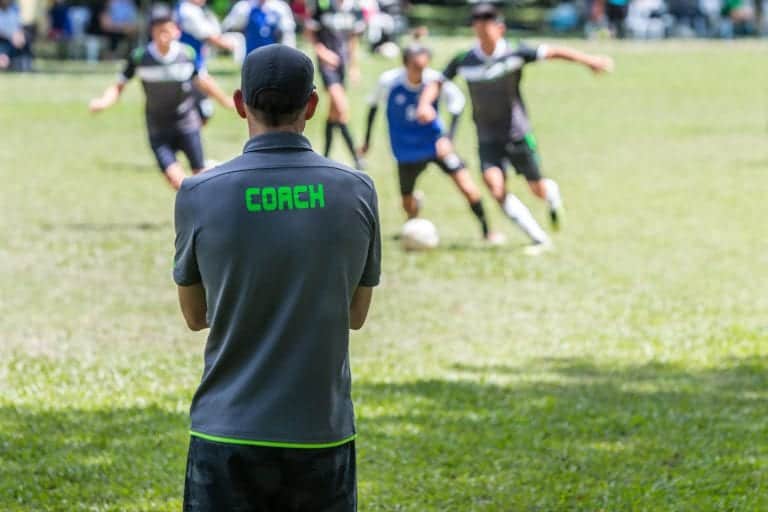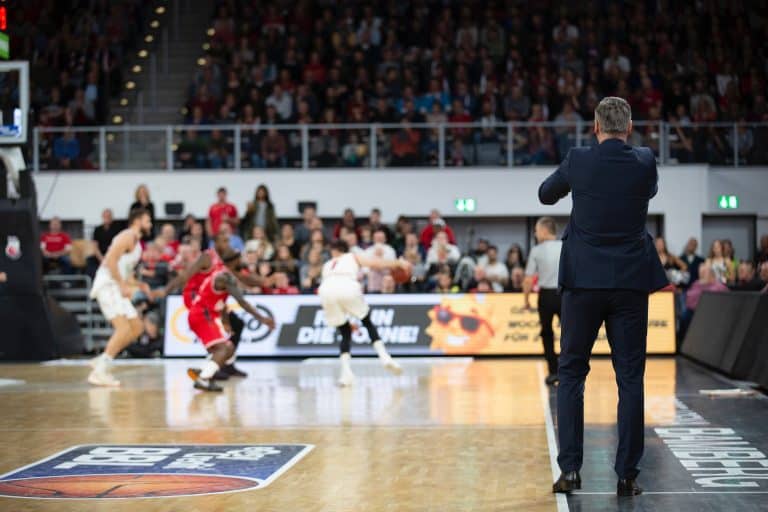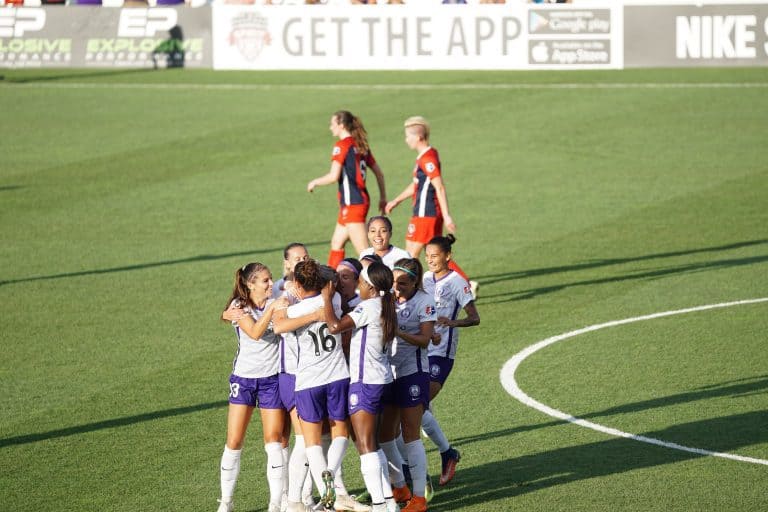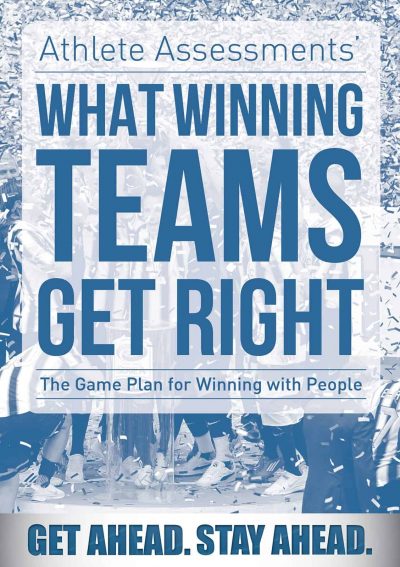In 2022, the Intercollegiate Tennis Association (ITA) launched a game-changing coach education program, titled CoachUp and we wanted to take the opportunity to reflect on the strength and success of the program as preparations for the subsequent programs are underway.
Launching in Summer of 2022, the inaugural four-month long program included 60 collegiate tennis coaches from all divisions across the United States and focused on developing critical interpersonal skills, incorporating workshops from several industry experts to deliver the content. The course aimed to develop each coach’s ability to impact results by handling themselves and the people who rely on them, with dexterity, ease, and expertise, and featured four primary topics titled Self-Mastery, People, Building Your Culture, and Understanding Your Stakeholders.
Sharing some insights into the ‘why’ of the program, Director of Coach Education at the ITA, Danielle McNamara shared,
“The reason we started CoachUp was because in college tennis there’s so much out there that can help a coach understand like the X’s and O’s, player development, and how to be a more effective coach on the court; but what is really lacking is the education in all of the added responsibilities of a college tennis coach today.
The responsibilities that are essential if you want to have a successful program and be a successful coach.”
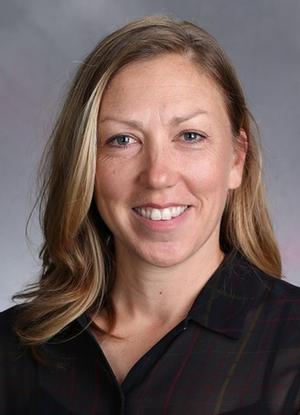
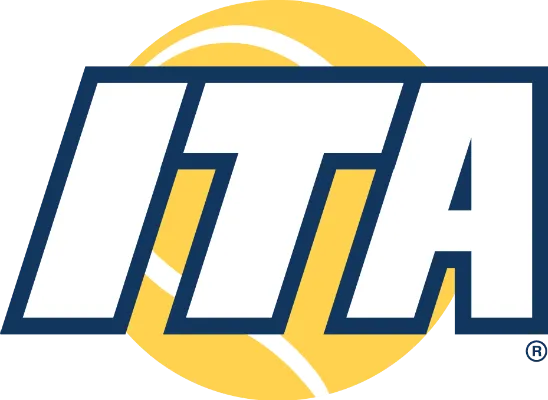
Targeted towards educating first-time Head Coaches, Danielle acknowledged that Head Coaches are essentially the ‘CEO’ of their teams, so it was important to focus the course around helping coaches to not only develop their players but know how to manage all the other things that now come along with the job. The ITA put together a committee of experienced coaches to decide on the format and focus of the program, which ultimately determined that the first step in the program needed to be based around self-awareness.
Danielle added,
“Dave Mullins, COO of the ITA, and I were both long-time college tennis coaches, and from our own personal experiences and the committee’s feedback, we all understood that in order to really lead and be able to coach others, you first need to have an understanding of yourself. If you don’t understand who you are and what makes you, you; or what you stand for, your values, and how you tick, then how could you possibly help others reach their potential? So that part was a unanimous ‘Yes, this is where we begin.’”
With this rationale behind the opening topic of Self Mastery, the ITA utilized Athlete Assessments’ CoachDISC Profiles for each of the participants in the program. During this time, coaches were provided with the opportunity to understand their own profiles and their individual behavioral choices before joining a group workshop with 4x Olympian, Lead Performance Consultant and Founder of Athlete Assessments, Bo Hanson to debrief their results and provide practical strategies to begin applying their knowledge within their coaching roles.
Bo shared,
“It was an honor to be involved with the CoachUp program and work with such a group of engaged and highly motivated coaches who were willing to examine themselves in order to grow as people and as coaches.”
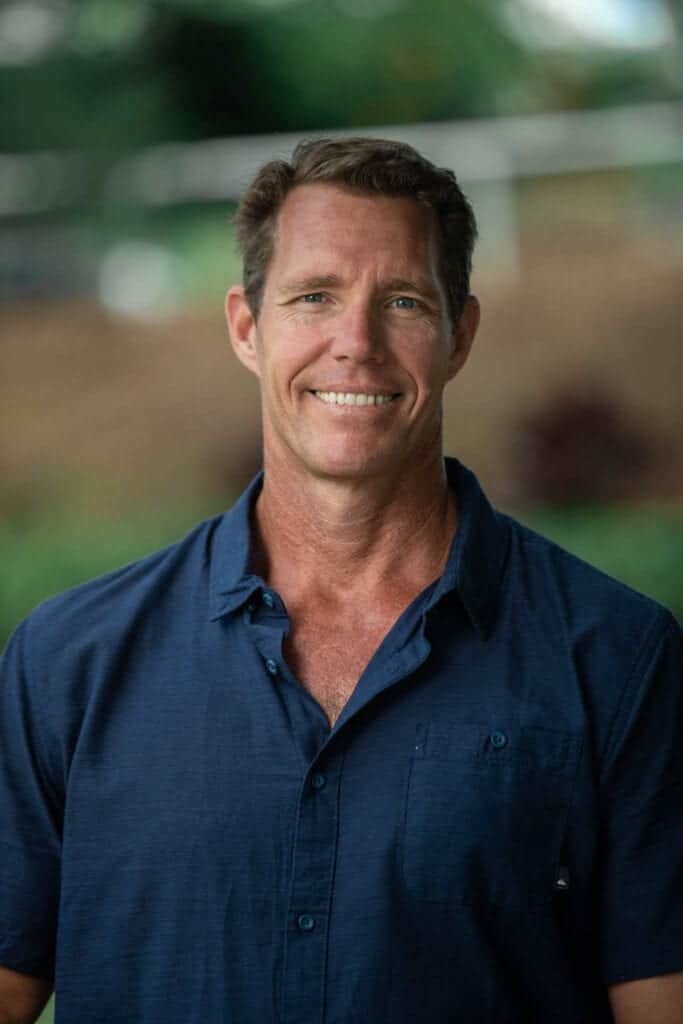
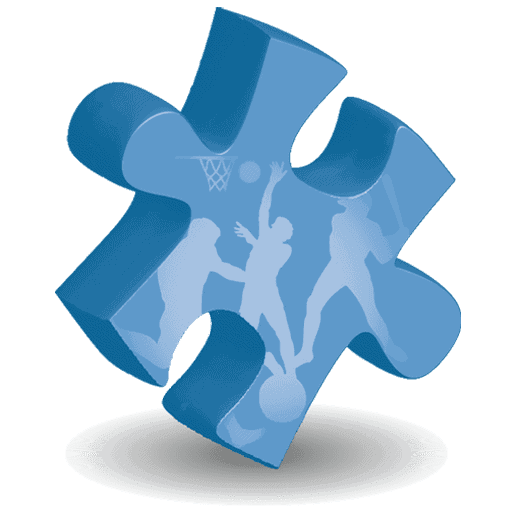
The CoachDISC Profile sees each individual respond to a 12-minute online survey which results in a personalized 40-page report, showing their unique spread of behavioral preferences, strengths, how they approach tasks, what motivates them, what environments they thrive best in, and importantly, how they are likely to behave under stress, all within the context of their coaching role.
When we consider the impact of our actions on the results we achieve as a coach, gaining direct insight into this can offer a vast platform for potential improvement. Reflecting on her own experience taking the CoachDISC prior to its inclusion in the program, Danielle shared,
Honestly, I wish I had done DISC when I was a coach because it was so eye-opening in terms of what you do with that information and then how can I use it to understand the people I'm working with better and therefore, better connect with them, motivate them, and have a stronger relationship with them.”
Dr. Tiff Jones of X-Factor Performance, who Athlete Assessments has worked closely with for many years, was also brought in by the ITA to deliver sections of the Self-Mastery module, developing the coaches’ self-awareness and understanding of the ‘why’s’ behind behavior, especially under stress.
“Because the coaches completed their profiles before the course, there was an immediate self-awareness and understanding of their personal triggers, motivations, fears, and the correlating reactive behaviors”, Dr Tiff explained.
Athlete Assessments’ DISC Profiles often confirm what people already know about themselves, but they also uncover hidden strengths and identify blind spots for development that a coach may be unaware of.
Dr. Tiff added,
“I witnessed many a-ha moments as coaches read their profiles and recognized themselves and understood the things that they do. The CoachDISC provides a foundation of knowledge so the coach’s analysis of the information moving forward is better understood and provides them with perspective based on their personal behavioral styles.”
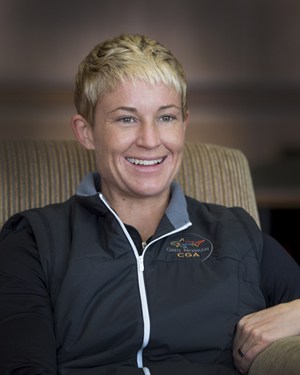
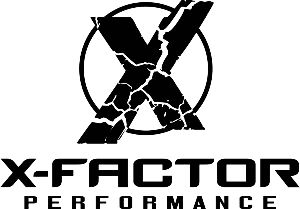
Danielle added,
“The coaches saw how powerful it is to understand the makeup of their team and those around them. The a-ha moment could be like, ‘Oh, that’s why you get the way you get when I approach you in this manner. It doesn’t work very well for you, so I’m going to try a different style next time because that’s just how you might respond better.’ There were a lot of moments like that where I think people made the connection of like how to take this and put it into practical use with each other, which was the whole point and was great to see. I think that was a huge positive piece of the course.”
During the session Dr. Tiff put the coaches in scenarios to understand the impact their behavioral choices can have, to bring light to each behavioral style and its potential behavior. The result Dr. Tiff explained, was an awareness and understanding which would enable coaches to adapt (make temporary changes to their behavior) and enable them to better serve their athletes and themselves.
Conversations around when to adapt and how to adapt were pivotal in the coaches’ development throughout the program and were built on from the Self-Mastery piece as having the ability to adapt requires a thorough understanding of your own behavioral tendencies as well as those of the person in front of you.
At Athlete Assessments we regularly see coaches who are exceptionally talented and naturally possess great insights when it comes to the technical side of their sport, yet they can struggle to adapt their coaching style when a situation requires them to. Inflexibility can cause communication breakdowns, create unnecessary stress, misunderstandings, and confusion states that commonly result in under performance and a disconnection between the coach and their athlete, hindering their ability to build strong coach-athlete relationships.
Dr Tiff explained,
“Reflecting on their individual profiles, coaches were able to dive deeper into past situations, current scenarios, and possible future interactions with their staff, individual players, and their teams.”
“It’s awesome when the coaches start connecting the dots and they start to realize why their coaching has worked and has not worked with certain players. Also, they start thinking through ways on how to better design practices and create scenarios in their practices that allow players to be exposed to areas that they struggle with during matches.”
Impressed by the coaches, Bo says,
“The level of engagement in the room was outstanding, the coaches were asking quality questions and sharing their understanding of the key concepts. Every coach in the program was working hard to develop themselves, and in our experience, coaches at the top of their field are always looking to improve themselves and consequently the way they coach. It’s what makes and keeps the best performing in that elite tier of their sport.”
He added,
“The program was oversubscribed, and when we see overwhelmingly positive responses to education opportunities like this, it indicates a depth of motivation for improvement amongst people and that’s exciting to be a part of.”
Delivered over an extended period, the program allowed time for the coaches to absorb the content and apply their learnings in real-time. A key component of the course saw each coach develop their own Coaching Philosophy. When it comes to coaching; continuous improvement, upholding and maximizing standards, and meeting goals, nobody knows better than coaches how important it is to have a clear approach and evaluate it regularly. Dr Tiff explained that taking time to map out a personal strategy of how and why things are done within your team, will not only keep delivery on track throughout the season, but ensure the focus is on what matters most to the coach. (Unsure what a coaching philosophy is, or how to develop one? Our article on ‘The Key to Unlocking Your Coaching Philosophy’ is worth a read.)
‘Culture’ is a buzz word in sport, you read it and hear it everywhere! Culture is given as the reason a team fails to fire, while other cultures are elevated to an almost mythological status for consistently producing world-class athletes. To demystify the process of creating a culture that supports the style of performance that a coach wants, the ITA brought in Athlete Assessments to help answer the questions around team culture and what really drives performance.
In the third program topic, Bo Hanson took the coaches through the GRIP Model (Goals, Roles, Interpersonal Relationships, and Processes) as a guide to creating a strong and aligned culture. Drawing on his more than 20 years of international coaching experience, in addition to four Olympic campaigns as an athlete, Bo shared his personal experiences in cultures and teams that gel, as well as insights into environments that produce teams which do not connect.
The GRIP process emphasizes that winning cultures do not evolve by themselves, but instead, direct and deliberate action by a coach is needed to establish, maintain, and sustain a high-performance culture.
As part of growing their capacity to build a high-performance culture, the coaches were tasked with reflecting on what winning means for them, and what winning means in their program. This clarity ensures that coaches evaluate performance with metrics that are relevant to the program’s goals.
Applying the tools they learned in the self-discovery module, the CoachUp participants learned how to use DISC to better align people’s natural behavioral tendencies with the non-technical roles they perform within the team. Importantly they also learned how to use the DISC Model to evaluate behavior in their program in order to make an honest assessment of the current state of their culture (an essential precursor to implementing the culture you want).
Danielle says,
“The feedback from the first CoachUp program has been overwhelmingly positive. Many mentioned the DISC Assessment as being a huge element of the course for them, it tied so many pieces of the course together and then culminated in our final project that the coaches had to do.”
The final project was individually led, with coaches choosing a focus related to the course but on a topic that they felt was most important for their program. After submitting a detailed proposal to Danielle, coaches then partook in small-group discussions where each coach was provided with the each individual’s project ahead of jumping on regular Zoom calls to present their project idea to the group. Coaches were primed to ask questions and challenge each other to strengthen their projects.
Danielle added, “It was amazing. We had Power Five head coaches with decades of experience on a call with a coach that was a first-time head coach with one year from a school you may or may not have ever heard of, and they’re sharing ideas on whatever their project was and really engaging with each other.”
The comprehensive course for college coaches continues into its second year in 2023, with applications now open for the 2023-24 Program. The program aims to continue developing the fundamentals of modern coaching, including strategies for coaching Gen Z, Self-Mastery, recruiting, hiring, and developing your athletes and staff, identifying and building relationships with your key stakeholders, and community engagement.
Summing up the successful program, Bo says,
“The CoachUp Program was specifically focused on the people side of sport, and we are so supportive of providing this opportunity to coaches to go beyond the technical aspects of their sport. We know it’s so important to get these elements right, and to have the ability to handle people well, not just for performance, but because everyone involved at every level of all of our sports is a person. We respond to situations and opportunities as people first, and so enjoyment becomes a performance factor.”
The Intercollegiate Tennis Association (ITA) is the governing body of college tennis in the United States, overseeing men’s and women’s varsity tennis at all levels – NCAA Divisions I, II, and III, NAIA, and Junior/Community College. Overarchingly, the ITA’s role is to educate and serve those individuals and groups who are involved in collegiate tennis. The organization works to foster an environment of sportsmanship, knowledge, and a passion for learning in its coaches, ensuring that the game of tennis is conducted at the highest possible standard for; junior and college players, their coaches and parents, and the at-large tennis public. The ITA serve some 1,200 schools, 3,000 coaches, with over 1,700 programs.

Interested in learning more about Tailored coach development?
Download our Case Study on the ITA CoachUp Program!
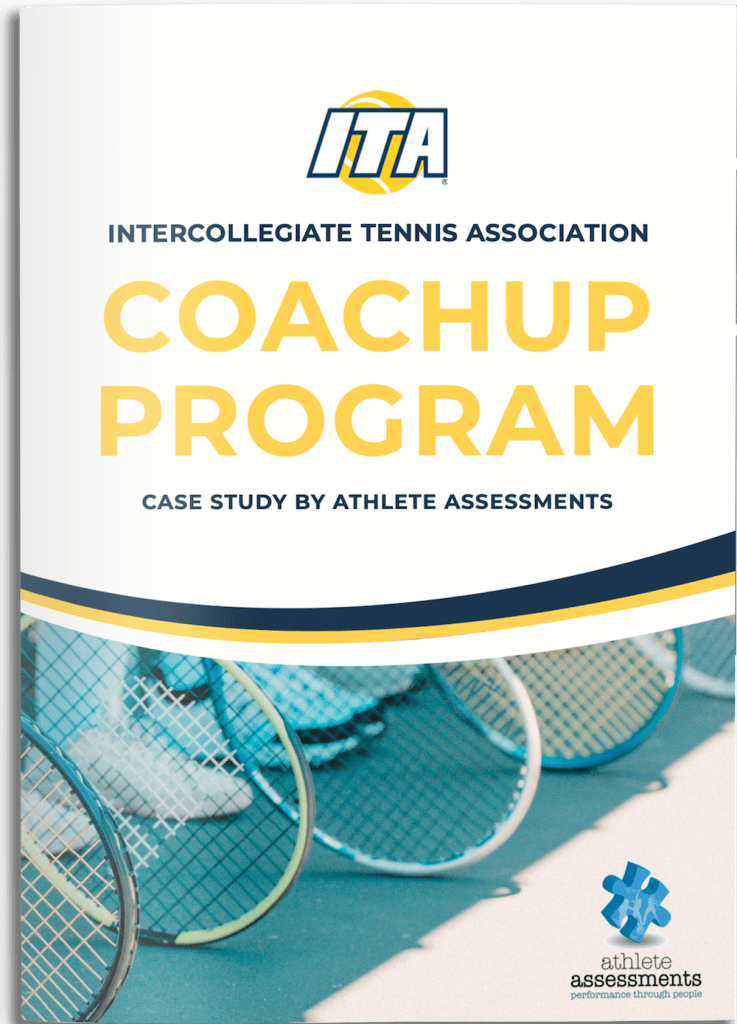


About
Danielle McNamara
Danielle McNamara, Director of Coach Education, Intercollegiate Tennis Association delivers the exceptional Coach Masterclass, the highly popular ITA College Tennis Coaches podcast, ITA/USTA mentorship program, and new coach orientation and support group. Danielle works closely with the organizations’ Chief Operating Officer and was recruited to the newly created position in 2022.
Previously she was the women’s tennis head coach at Yale from 2006-14, and 2016-21. Danielle was also the head coach at Texas from 2014-15. She guided Yale to four NCAA Tournament appearances, including the first in program history in 2008. Danielle coached 27 All-Ivy singles players, 12 All-Ivy doubles teams, two Ivy League Rookie of the Year players, and the first Yale women’s tennis Ivy League Player of the Year.


About
Dr. Tiff Jones
Dr. Tiff Jones is a Certified Mental Performance Coach (CMPC) and owner of X-Factor Performance Consulting. With over 20 years’ experience working with professional, college, and youth athletes, teams, coaches, and clubs, Dr. Tiff uses theory and science to create mental skills training to help develop the tools necessary for mental toughness. Current clients include and are not limited to University of Florida, Alabama Gymnastics, Auburn Gymnastics, and many other D2 and D3 University and College Athletic Departments. Dr. Tiff has also consulted with the USA Women’s U-20 Soccer Team, USA Women’s Ice Hockey, and many Olympic and professional athletes in a variety of sports.
Dr. Tiff is a consultant for Athlete Assessments. She is also a Certified Chopra Health and Well-Being Teacher, a Certified Chopra Meditation Teacher and Certified Chopra Coach. The Chopra Certification allows Dr. Tiff to also work and train her clients using Ayurvedic (holistic) techniques for the development of emotional consciousness.


About
Bo Hanson
Bo Hanson’s career within the sport and the business sector spans over 25 years, delivering leadership, management, and coach development. In addition to his own athletic career comprising of four Olympic appearances and including three Olympic medals, Bo founded Athlete Assessments in 2007 and has now worked with coaches, athletes, and development professionals from over 40 different sports spanning across the globe. These include international, national, state, professional, and collegiate teams, and programs throughout all levels of sporting organizations.
Bo’s proven skill in improving the coaching strategies and performance of his clients has resulted in over 22 national championships, Olympic medals, and pro team premierships, alongside transformations in company performance. Long-standing working relationships and consistent high-quality feedback from his clients are testimony to his ability to understand, connect, design, and deliver exceptional work.
Where to from here?
As a sports industry leader and organization at the apex of sport globally, the ITA compiles and schedules regular coach education programs and events. Athlete Assessments continues to value the ITA’s invitation to contribute to and deliver components of the program utilizing our expertise in building tailored coach development, to build self-awareness and what it means in the coaching context ,and using the same tools to understand others. Athlete Assessments also tailored content on developing a coaching philosophy and growing a high-performance culture. If we can help you and your people be your best, reach out and contact us.
Recommended Articles
When we look at leaders in any endeavor, we often see their success critically defined by their leadership philosophy, and when it comes to sport coaches it is exactly the same. Having a defined coaching philosophy is key to effective coaching (and leadership), but the process of developing and understanding your own philosophy is often sidelined. When your team relies on your performance as a coach as much as they do on technical execution for achieving a winning outcome, this process is a priority.
Coaches are always evaluating performance, it’s a critical part of their role in order to be successful. Whether it be through assessing the scoreboard results of their team, individual athletes’ statistics, or even through the lens of their team’s culture. However, when it comes to evaluating their own performances, who should coaches turn to when they are looking to improve their own efficacy and skills?
Creating and maintaining an effective team culture is critical to sustained success. So, if we define culture simply as ‘the way we behave around here’, we need to determine what is acceptable and what is not? But then as a coach, how do you sustain a culture or how do you deal with an athlete who acts in a way that opposes the culture you want?


